The contrarian American taking on the British banks
- Published
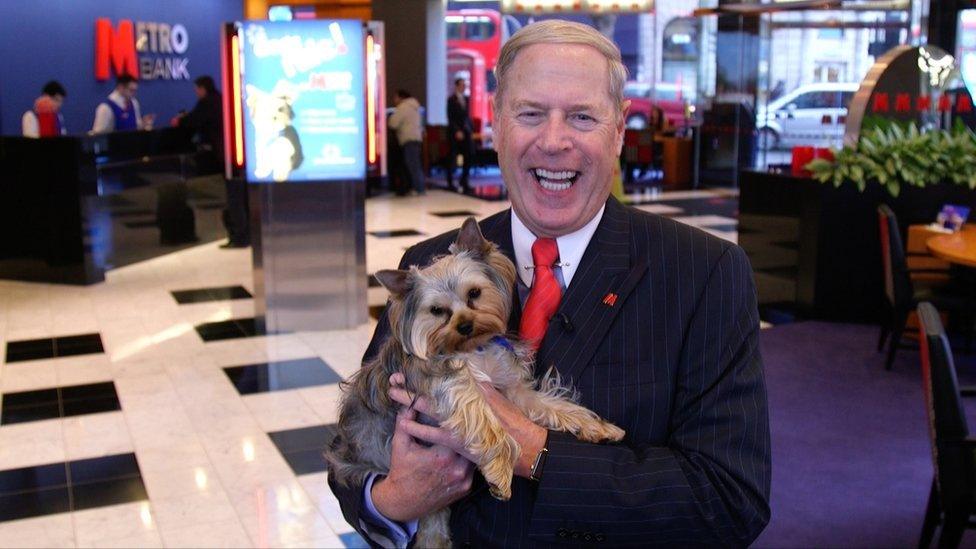
Vernon Hill's pet Yorkshire Terrier is officially Metro Bank's chief canine officer and has his own seat on Mr Hill's private plane
Vernon Hill is a contrarian and proud of it.
Sitting in his glass-walled office, wearing a navy pin-striped suit and red tie, the 70-year-old American founder and chairman of Metro Bank looks just like a typical banker, but appearances aside he's anything but.
The chain he founded in 2010 in the wake of the financial crisis, boldly branded in the red, white and blue colours of the American flag, was Britain's first new High Street bank for over 100 years.
His unusual focus, in a world of 24-hour online banking, is on building physical branches, or stores as Mr Hill prefers to call them, which open earlier and longer than any of their rivals.
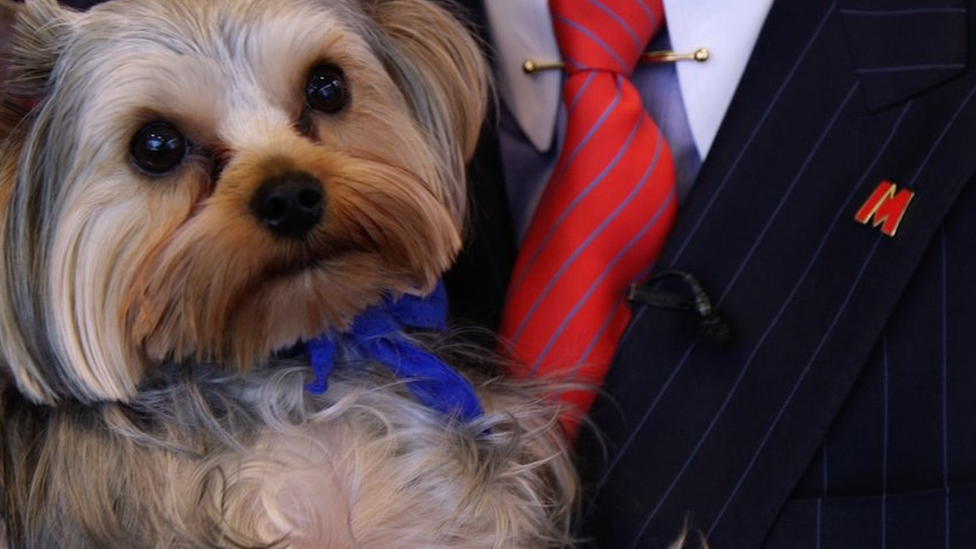
Sir Duffield is officially Sir Duffield II as the original Duffy died last year
The branches themselves - there are now 40 in London and the South East - look almost cartoonish; like a child would design a bank. Open plan with no glass barriers between the customers and staff, there are giant "Dogs rule" posters featuring Mr Hill's Yorkshire Terrier Sir Duffield - officially the bank's chief canine officer - advertising its policy of embracing pooch owners.
Each branch is stocked with bowls of dog biscuits and water and there are even canine-sized, logo-emblazoned neckerchiefs.
Then there are the large, flashing "magic money" machines which change coins for anyone, customers or not, free of charge - installed at an estimated overall cost of £10m.
Is this really a serious business model?
Mr Hill laughs genially, clearly used to the line of questioning.
"This is a serious bank. It's about service, it's about convenience, it's about fun.
"Everything we're doing here in Britain is not how do we make a dollar for the next quarter but how do we build more fans and that requires a fundamental rethink of how you do it."
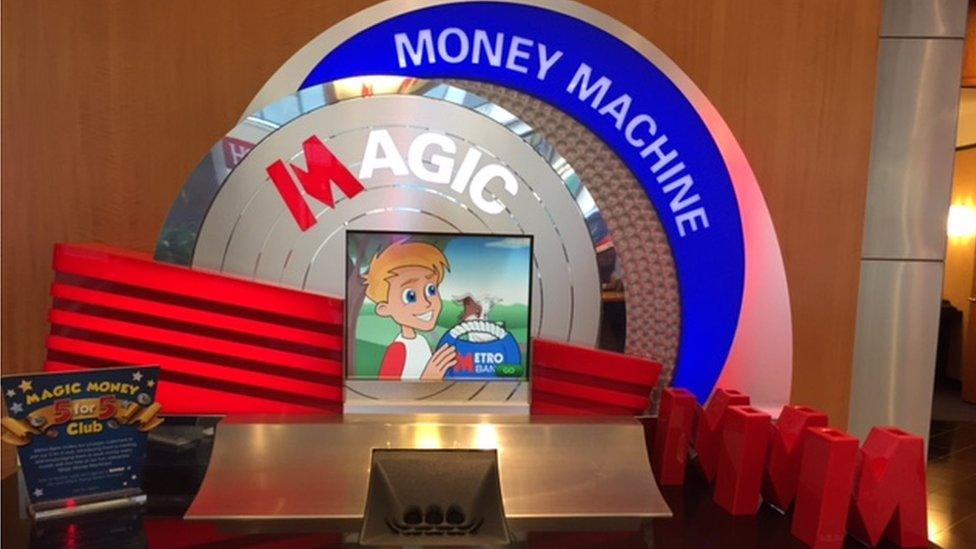
The magic money machines were designed by Vernon's wife Shirley who does all the marketing, branding and interior design for the firm
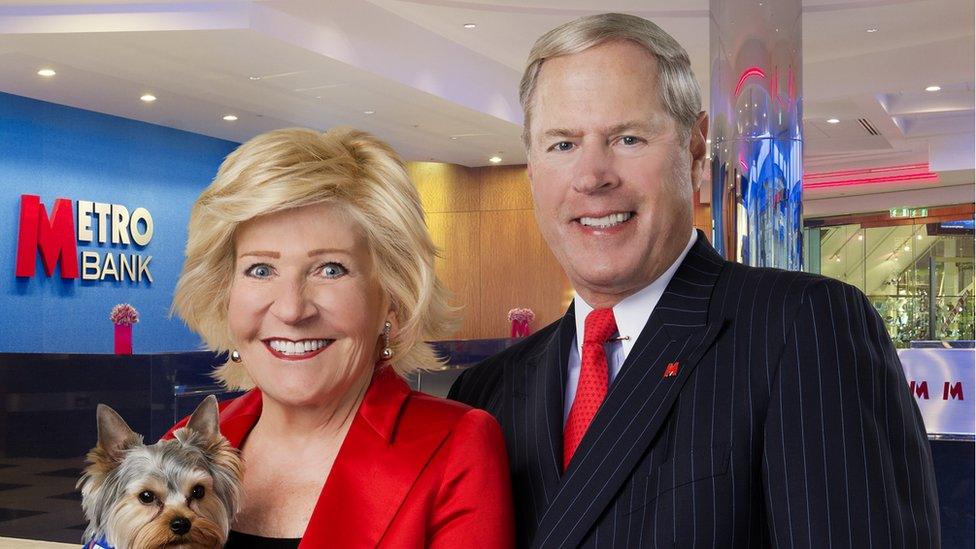
Vernon uses his wife Shirley's firm to manage the design and look of the branches
"Fans not customers" is Mr Hill's business philosophy, one he holds so strongly that he's even penned a business book with the same title.
"Fans join your brand, fans remain loyal and fans bring their friends," he rattles off pat.
Like much of what Mr Hill says, it seems rehearsed.
In fact, he readily launches into his background without any prompting, seeming startled if asked a question.
It's likely that his stammer has meant it's easier to practise answers ahead of interviews, but there's also a sense of frustration that he's been through all of this many times before and yet is still having to repeat the same message, which essentially boils down to: No, I'm not crazy.
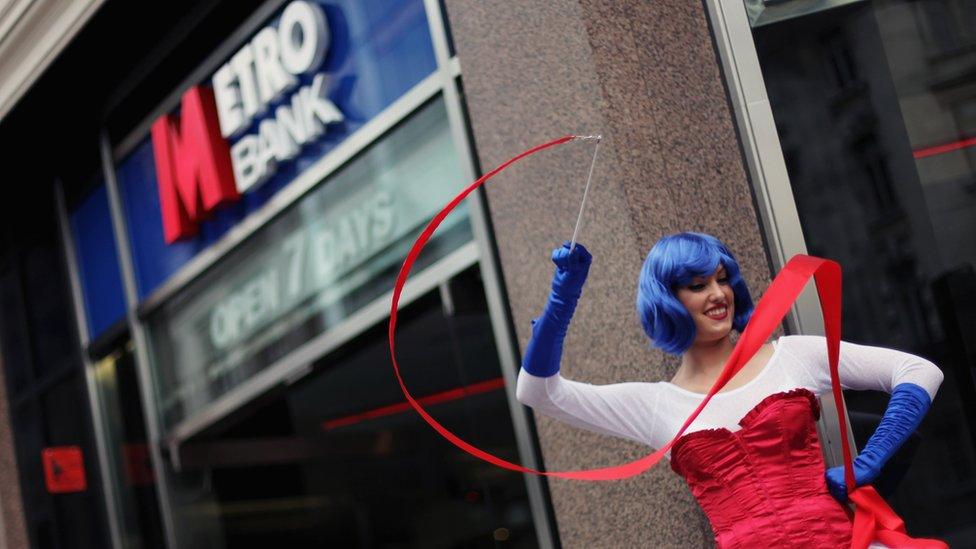
New branches are heralded with the kind of fanfare normally designed for a pop concert, with stilt walkers, free food and music
His confidence is not without foundation. In the UK, Mr Hill may be less well known, but in the US he's in the elite league of company bosses to have made it into Forbes' 20-20-20 club - chief executives who have held the top job for at least 20 years and delivered at least a 20% annual return to shareholders.
He achieved the impressive feat at Commerce Bank, the US bank he founded in 1973 with one store when he was just 26. By the time he sold it in 2007 for $8.5bn, he had built it into a major player across the US with 440 stores.
He says the success of that bank, where he had to constantly battle his way against local and national rivals into new markets, made him confident that the same model would work here.
Mr Hill's aim then and now is to turn the "mundane, dull business of retail banking" into an "exciting growth business" by "looking at it as a service business that happens to be a bank".
Opening a personal current account takes just 12 minutes and a commercial business account - which accounts for around 60% of the business - an hour.
He is betting this speed and convenience will make up for the fact the bank doesn't offer the best interest rates.
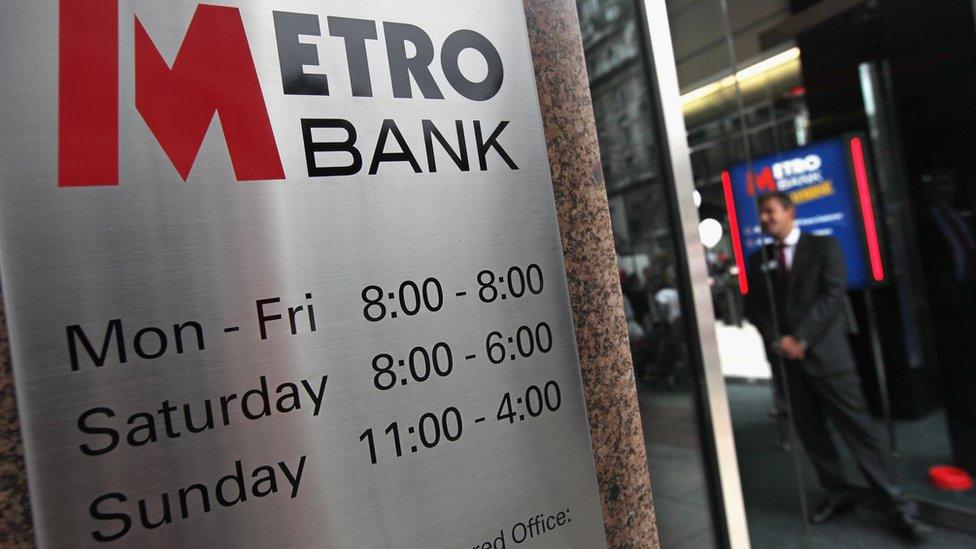
Metro Bank's branches are open longer hours than most of its rivals
Mr Hill got the idea for the bank from one of his first jobs: helping to find new locations for McDonald's in the late 1960s, including a few scouting rides with Ray Kroc, the man credited with driving the fast food giant's success.
"There's no doubt that I learned a lot from that including how to build a brand from scratch. Every store would give you the same experience and every customer had value."
It's a role he now performs at Metro Bank, choosing the next branch locations when he flies into the UK on his private jet - where Duffy has his own special seat - for a week each month.
Typically, he chooses high-profile street corners, rents both the ground and the first floor if he can, and then extravagantly rips out the upper floor, because customers, he says, like high ceilings.
All of this means it costs around £2m to open a new store.
"Remember our first job is to get you to switch banks. I can't serve you until I get you to switch. The stores are the public face of that," he says.
Mr Hill admits it's "an unusual passion", but says he's always been interested in banks because of the insight it gives him into other businesses, as well as the financial rewards.
"We always like to make money. It's a good way of keeping score," he quips.
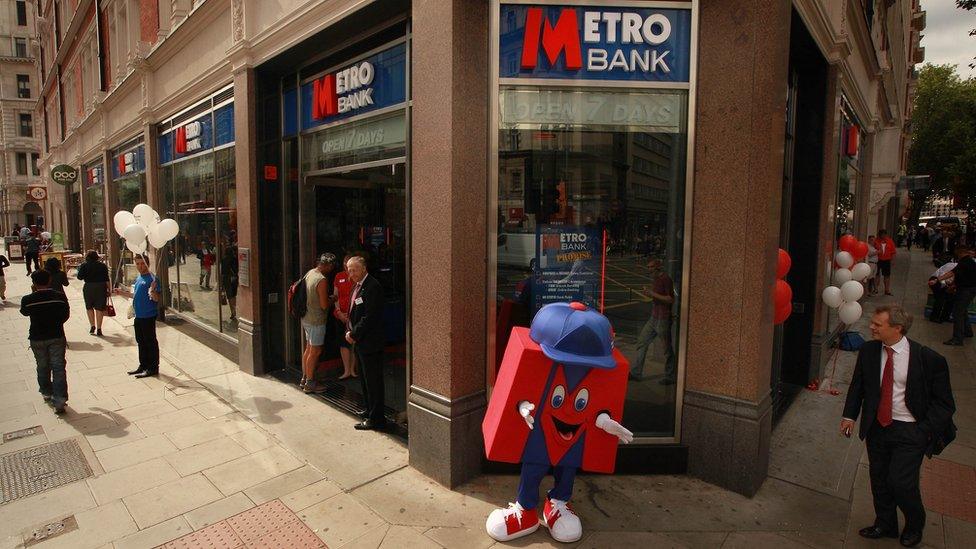
A foam filled 'M' attends all new branch openings
He laughs at the idea that bringing the model to the UK must have been scary. "I took a leap," he says, suggesting such boldness is an American trait with US entrepreneurs tending to just go for it, while their British counterparts spend too much time planning.
So far, Mr Hill seems on track to prove the doubters wrong. After several delays, the bank has recently announced that it plans to float some of its shares this year, suggesting it is confident of support from a wider pool of investors.
The company's most recent results, for the three months to the end of September, show deposits at the bank grew 87% year-on-year to total £4.4bn, with customer accounts now at 601,000, but the costs of expanding mean it has yet to make a profit.
It has also dramatically reduced the number of stores it plans to open to 150 from an original target of 200 by 2020 - a cut Mr Hill blames on the geography of the UK which he says lacks the "suburban sprawl" of the US.

Another blow was the departure of co-founder Anthony Thomson, who left in 2014 to set up online-only bank Atom Bank.
Shore Capital analyst Gary Greenwood says this reinforces his scepticism over the durability of the business model.
"It's a bit like designing the best steam engine around when everyone else is moving to fuel or electric," he says.
But Mr Hill is ebullient.
"Entrepreneurs believe in their model. They're trying to prove their ideas are better than what everyone else thinks.
"Did you see that Forbes list?" he asks.